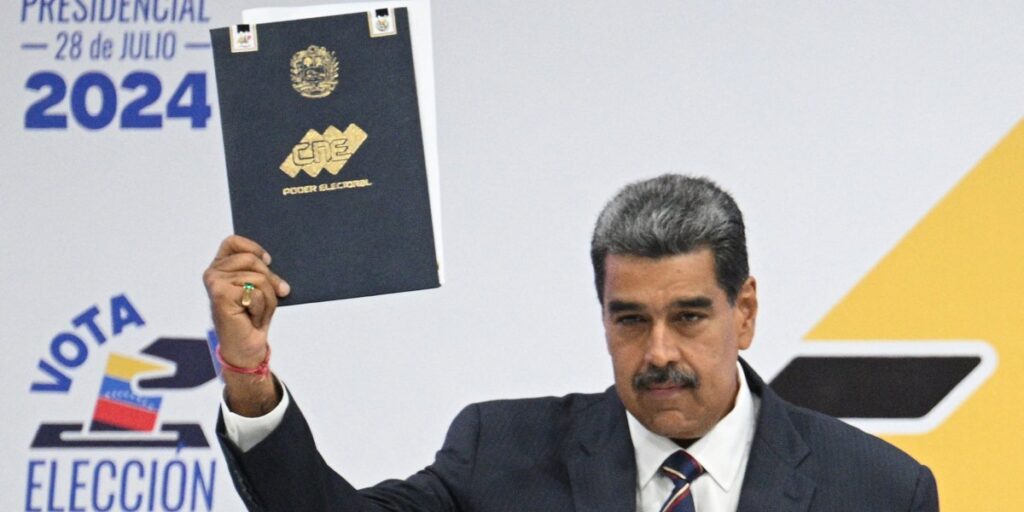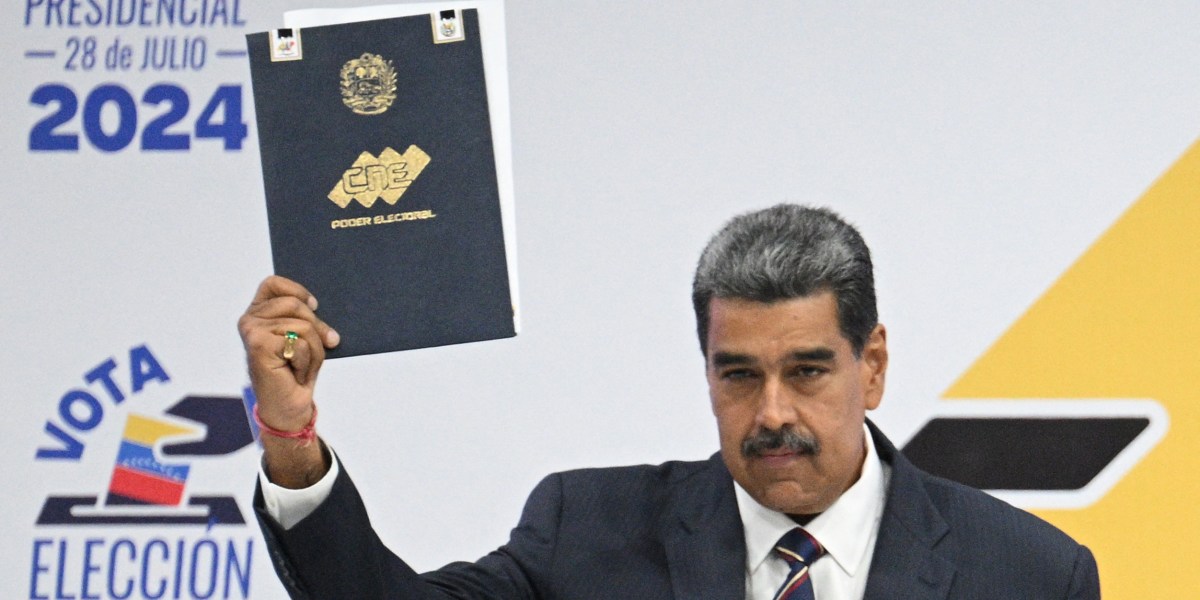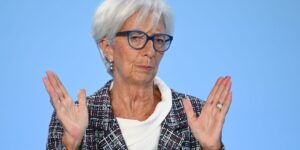Venezuela’s Nicolas Maduro proves Milton Friedman right, 60 years later
Venezuela’s socialism started out democratically with Hugo Chavez’s election in 1998—then the Venezuelan economy—and democracy—collapsed.


The Venezuelan government is claiming that Nicolas Maduro has won re-election to a third term as President. However, this claim does more to illustrate the incompatibility of a democratic political system and a socialist economic system than it does to establish Maduro’s legitimacy as Venezuela’s President.
The problem is that socialist systems centralize economic power in the hands of government. Once that happens, the government also has the power to subvert the democratic process by punishing any political opposition economically.
Venezuela’s socialism started out democratically with Hugo Chavez’s election in 1998. The state’s monopoly on the world’s largest oil reserves, combined with high prices in the 2000s, gave the government plenty of foreign reserves to import goods and appease voters, even though its policies were undermining its domestic production and causing the economy to underperform.
Oil production eventually declined due to state incompetence, corruption, and political graft. Once global oil prices also fell, the Venezuelan economy collapsed and has now been in crisis for a decade.
Under Maduro, socialist economic policies and corruption have caused one of the worst economic and humanitarian crises in the Western Hemisphere in centuries. Annual inflation peaked at 344,509% in 2019. (That’s not a typo!) Shortages of basic goods are widespread. More than 7 million refugees have fled the country.
Voters would surely throw any administration with this track record out of office in a free and fair election. At that point, when voters in any free country would demand a change of course, Venezuela’s democratic socialism evolved into normal authoritarian socialism.
This year, it appears Venezuela’s National Electoral Council (CNE) manipulated the vote count outright, leading to the Organization of American States (OAS) refusing to recognize the election results. However, this is not the first time the Maduro regime has manipulated the democratic process. In his last re-election bid, six years ago, state-owned firms ordered workers to vote for Maduro under threat of losing their jobs and polling places allegedly bribed voters with food aid to support the regime.
Following Sunday’s hotly contested election, the CNE, run by Maduro appointees, declared him the winner claiming that he had won 51.2% of the votes while opposition candidate Edmundo Gonzalez received only 44.2% of the votes. The opposition was denied access to CNE headquarters while votes were being tallied, but they claim that the 73% of tally sheets they’ve been able to access show Gonzalez winning by a more than two-to-one margin. Independent pre-election polling is much more in line with the opposition’s claims than the Venezuelan government’s. Three independent polls were conducted in the weeks leading up to the election. Each indicated that between 59% and 72% of voters intended to vote for Gonzalez, while Maduro polled at just over 12% in two polls and just under 25% in the third.
More than 60 years ago, Nobel Prize-winning economist Milton Friedman wrote that he knew of no “society that has been marked by a large measure of political freedom, and that has not also used something comparable to a free market to organize the bulk of economic activity.” While Venezuela was briefly an exception, it eventually lost its political freedoms after socialist policies destroyed its economic freedoms.
More must-read commentary published by Fortune:
The opinions expressed in Fortune.com commentary pieces are solely the views of their authors and do not necessarily reflect the opinions and beliefs of Fortune.







